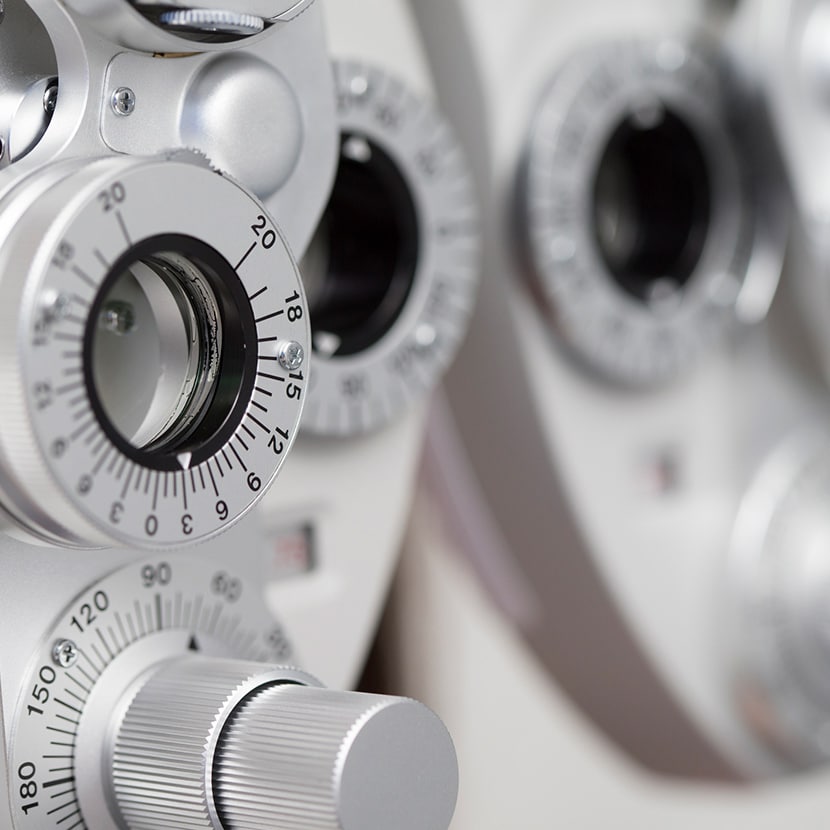Photorefractive Keratactomy
PRK, which stands for Photorefractive Keratectomy, is a laser correction surgery very similar to LASIK that is more beneficial for those who have very thin corneas.
While traditional LASIK cuts a flap into the cornea, the PRK procedure simply removes only the outermost layer of the cornea (called the epithelium) before using the same excimer laser used in LASIK to sculpt the cornea and correct refractive error. Altering the shape of the cornea allows light entering the eye to be properly focused on the retina for clear vision. While both procedures will result in corrected vision, some prefer LASIK for the faster healing times and others prefer PRK for its extra safety as the original laser surgery for vision correction. PRK is a safer procedure for patients with thin corneas since more of the cornea is left untouched during the procedure than in LASIK. Unlike LASIK surgery, there is no risk of corneal flap complications because the cornea does not need to be cut. Like most other refractive surgeries this procedure only takes 10 minutes per eye, and most people only feel a little pressure. You will be awake during the procedure but your eyes will be numbed with a topical anesthetic. Your surgeon will have you look into a target light while the laser uses pulses of light to reshape your cornea. As an additional benefit, patients experience less dryness in the eyes following PRK surgery. However, PRK does have a slightly longer recovery time than LASIK surgery as the outer layer of the cornea has to repair itself. After the procedure, you will have a corneal abrasion that will take 3-5 days to heal. The body is an amazing thing, and the cornea is able to repair itself without sutures or much interference from your surgeon. During the healing time you will wear a soft contact lens that acts as a bandage to minimize pain, promote healing, and protect the cornea. After the cornea has healed, your surgeon will remove this bandage lens for you. As a PRK patient, you will likely experience mild discomfort during the healing process. Expect some blurry vision initially; it is very normal for several weeks to pass before vision is clear and stable! Your vision will continue to improve and you will achieve perfect sight and minimal disruption to the cornea with PRK laser correction surgery.




